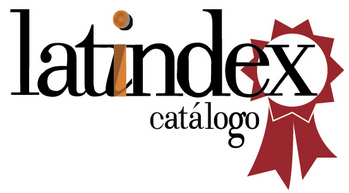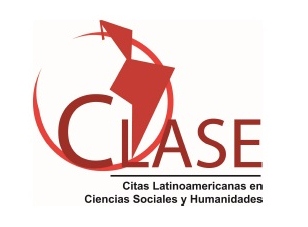Cuatro modelos de argumento
Resumen
Trasladaré a la teoría de los argumentos dos distinciones de la teoría de las razones. En teoría de los argumentos el generalismo afirma que argumentar presupone reglas generales que especifican qué tipo de conclusiones se pueden extraer de qué tipo de datos, mientras que el particularismo lo niega. Aplicado a los argumentos, el atomismo mantiene que las partes de un argumento determinan completamente sus propiedades lógicas y el holismo lo rechaza. Mostraré, primero, que los modelos premisas-conclusión son atomistas y particularistas. Distinguiré después un modelo de Toulmin simplificado, con premisas, conclusión y garantía, y un modelo ampliado, que incorpora las excepciones o condiciones de recusación, y argumentaré que el modelo simplificado de Toulmin es atomista y generalista, mientras que el modelo ampliado es holista y generalista. Finalmente describiré una versión modificada del modelo de Toulmin holista y particularista recurriendo a los modificadores de Bader y a la argumentación por analogía.Citas
Bader, Ralf (2016). Conditions, Modifiers and Holism, en Errol Lord and Barry Maguire, eds., Weighing Reasons, 27-55. Oxford: Oxford University Press.
Brandom, Robert (2000), La articulación de las razones. Una introducción al inferencialismo. Traducción de Eduardo de Bustos y Eulalia Pérez Sedeño, Madrid: Siglo XXI
Dancy, Jonathan (2004). Ethics without Principles. Oxford: Oxford University Press.
Ducrot, Oswald (1998). Los modificadores desrealizantes. Signo y seña 9, 45-72. Traducción de Corina García González y Alicia Barbieri de Les modificateurs déréalisants, Journal of Pragmatics 24, 1995, 145-165.
Dutilh Novaes, Catarina (2021). Argument and Argumentation, en Edward N. Zalta, ed., The Stanford Encyclopedia of Philosophy https://plato.stanford.edu/archives/fall2021/entries/argument/
Finocchiaro, Maurice A. (2013). Meta-argumentation. An Approach to Logic and Argumentation Theory. Londres: College Publications.
Govier, Trudy (1999). Reasoning with pros and cons: conductive argument reconsidered. En Govier, The Philosophy of Argument, 155-180. Newport News, VA: Vale Press.
Harman, Gilbert (2002). “Internal Critique: a Logic is Not a Theory of Reasoning and Theory of Reasoning is Not a Logic”, en R.H. Johnson, H.J. Ohlbach, Dov M. Gabbay y John Woods, eds., Handbook of the Logic of Argument and Inference: the Turn Towards the Practical, 171–186. Amsterdam: Elsevier.
Johnson, Ralph H. (2000). Manifest Rationality. A Pragmatic theory of Argument. Mahwah, NJ: Lawrence Erlbaum.
Lamond, Grant (2005). Do Precedents Create Rules? Legal Theory, 11 (2005), 1–26.
Levi, Don S. (1995). The Case of the Missing Premise. Informal Logic, Vol. 17, No. 1, 67-88.
Lord, Errol y Maguire, Barry (2016). An Opinionated Guide to the Weight of Reasons, en Errol Lord and Barry Maguire, eds., Weighing Reasons, 3-24. Oxford: Oxford University Press.
Marraud, Hubert(o) (2017). De las siete maneras de contraargumentar. Quadripartita Ratio: Revista de Retórica y Argumentación, 2(4), 52-57. ISSN: 2448-6485.
- (2018). Arguments from Ostension. Argumentation 32, 309-327. DOI 10.1007/s10503-017-9435-9
Scanlon, Thomas (2004). Reasons: a puzzling duality? En Reason and value: Themes from the moral philosophy of Joseph Raz, ed. por R. Jay Wallace, Philip Pettit, Samuel Scheffler y Michael Smith, 231-246. Oxford: Oxford University Press.
Schwarz, Baruch B. y Glassner, Amnon (2003). The blind and the paralytic: supporting argumentation in everyday and scientific issues, en J. Andriessen, M. Baker y D. Suthers, Arguing to Learn. Confronting Cognitions in Computer-Supported Collaborative Learning Environments, 227-260. Dordrecht: Springer, 2003.
Sellars, Wilfrid (1953). Inference and Meaning. Mind vol. 62, núm. 247, 313-338.
Toulmin, Stephen E. (2003 [1958]). The Uses of Argument. New York: Cambridge University Press. Traducción de María Morrás y Victoria Pineda, Los usos de la argumentación. Barcelona: Península 2007.
Toulmin, Stephen E., Rieke, Richard. y Janik, Allan (1984). An Introduction to Reasoning. 2ª edición. New York: McMillan. Traducción de José Gascón, Una introducción al razonamiento. Lima: Palestra, 2018.
Wellman, Carl (1971). Challenge and Response. Justification in Ethics. Carbondale y Edwardsville: Southern Illinois University Press.
Wenzel, Joseph (2006): “Three Perspectives on Argument. Rhetoric, Dialectic, Logic”. En Trapp, R. y Schuetz, J.H., Perspectives on Argumentation: Essays in Honor of Wayne Brockriede, 9-26. Nueva York: Idebate Press.
Woods, John y Hudak, Brent (1989). By Parity of Reasoning. Informal Logic IX.3, 125-139.
Una vez que un texto es aceptado para su publicación en Quadripartita Ratio, sus autores deben firmar dos documentos de carácter legal: una Licencia de uso y una Declaración de autoría.
Con la Licencia de uso, los autores autorizan la publicación de su obra y la difusión de ésta (integración en bases de datos, difusión en nuestras redes sociales, reediciones posibles, etc.). No obstante, se autoriza la descarga, reproducción y distribución de todos nuestros contenidos publicados, siempre que no se modifique el contenido y se indique su origen (nombre de la revista, volumen, número, páginas y dirección electrónica del documento).
Con la Declaración de autoría, los autores manifiestan que la obra es de su autoría, original e inédita.









